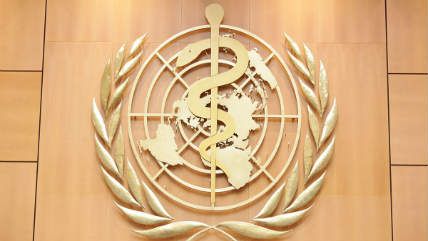WHO Worries Africans are Getting Too Fat
Suggests taxing their sodas to help

The World Health Organization (WHO) released a handy guide Tuesday on how countries can nudge people to consume less junk.
According to the WHO report, nations looking to shift their citizens' diet to something a little more state-approved should use excise taxes on sugars and saturated fats in order to increase their retail costs by around 20 percent. This, if coupled with subsidies for healthier fruits and vegetables, it says, would bring about an appropriate drop in the consumption of black-listed foods.
The purpose of such tax hikes, the WHO insists, is to combat the scourge of diabetes and obesity, particularly in the developing world; Asia and Africa are reporting fast-growing rates of people being overweight.
One might think Africans getting a little too pudgy would be welcome news, given how much of the continent is still plagued by malnourishment. Not so! according to the WHO, who instead sees the world's poor as receiving "the largest health benefit from taxes," since their "consumption is high and post-tax reductions in consumption are relatively large."
It's true that the poor consume more sugar and fat than the rich. This also means they would be hardest hit by any tax on those substances; indeed, a number of studies on "fat taxes" have found that their burden falls invariably on low-income persons.
Moreover, these taxes often fail to accomplish their aim of shifting consumers' choices away from the targeted foods. A study on a 2011 Danish "fat tax" put out by the U.K.'s Institute for Economic Affairs found 80 percent of Danes did not change their shopping habits at all as a result of the tax. Indeed, the levy proved so ineffective and unpopular that it was scrapped in 2013, after less than two years.
The WHO report disputes the idea that these taxes are inherently ineffective (saying they would work if we just raised them high enough!), but it does admit that they often face "considerable" opposition. Instead of treating that opposition as legitimate, however, the agency pins the blame on insufficient elaboration of the obvious benefits by health officials and nefarious political pressure from industry groups. It even lists a number of "scare tactics" employed by the food industry and others in the past, including abominable claims that these taxes are somehow "unfair to poorer people," that they "harm small businesses," or even that the "government should not interfere with the personal choices of consumers."
Governments should not let these claims hold them back from imposing heavy taxes on fats and sugars in the developing world, though, says the WHO. "Regardless of pressure and finance from industry," the report concludes, "any opposition to taxation can be overcome." Good to know.
Rent Free is a weekly newsletter from Christian Britschgi on urbanism and the fight for less regulation, more housing, more property rights, and more freedom in America's cities.


Show Comments (85)